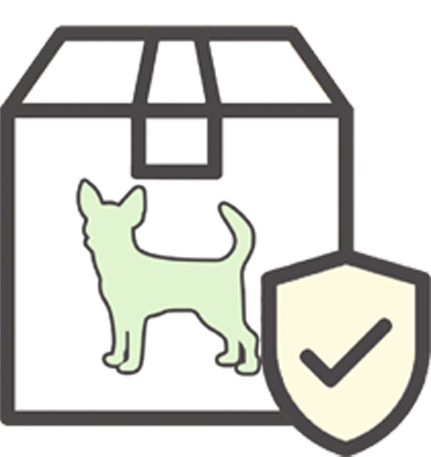ADA Service Dog Laws
Friday, December 07, 2018 02:13:13 PM America/Los_Angeles
Service dogs are working dogs with big hearts. Service dogs assist and protect those afflicted with disabilities. In accordance with the American Disability Act (ADA), service dogs (and other service animals) must be allowed to enter establishments and businesses that serve the general public.
Refusal to permit a service dog to enter is a violation of Federal law.
Note though, state legislatures have the ability to create broader definitions of a service animal. Should you wish to find out state specifics, reach out to the state’s attorney general office for additional information.
Defining a Service Dog
A service dog is trained to execute tasks for a disabled person. However, service dogs whose only task is to provide emotional support, DO NOT meet the ADA’s definition of a service dog.
A service dog can, however:
- Alert someone who is deaf.
- Remind someone to take medication on time.
- Guide someone who is blind.
- Protect an owner who is having a seizure.
- Pull a wheelchair.
- Calm an owner with Post Traumatic Stress Disorder (PTSD).
The list is limitless and as large as a dog’s heart.
The ADA’s Rules Regarding Service Dogs
Service dog owners (and handlers) must follow service dog laws prescribed by the ADA.
Those with a disability that are cared for by a service dog must:
- Be treated equally to other patrons without a service dog.
- Not be sequestered from other patrons without a service dog.
- Not be charged additional fees compared to others without a service dog. However, if an establishment typically charges patrons for damage to their property, the damage caused by the service dog would be included in this charge.
- If s business requires a deposit for pets, this specific fee must be waived for service dogs.
- Food-related businesses (preparing or selling food) must permit a service dog within the businesses confines - even if state/local health codes forbid it.
- Business employees arenot, by law, required to serve food or provide care to a service dog.
Reasons to Deny Access to a Service Dog and their Owner
A disabled person who is accompanied by a service dog CANNOT be asked to remove their service dog unless one of the following occurs:
- The service dog becomes out of control and its handler cannot control the service dog or refuses to control the service dog.
- The service dog is not properly housebroken and decides to relieve themselves on fake grass rather than real grass or fresh grass.
Should there be a valid reason to request that the service dog be removed, the service dog’s handler must be offered a chance to receive goods and services without the presence of a service dog.
Controlling a Service Dog
A service dog must be under control at all times. Generally, service dogs are leashed or tethered as a means to control them. However, should any of these devices impair the service dog’s ability to accomplish the task they have been trained to do, service dogs may be controlled by voice commands or hand signals. Remember, the service dog must understand where their dog bathroom is located.
Invalid Reasons to Deny Access to a Service Dog and their Owner
Unfortunately, some people have either allergies or a fear of dogs. Should someone be allergic to a dog’s dander (or have a debilitating fear), accommodations must be made for this specific situation. Reassigning the student with allergies, if possible, to a different location in the school (or the same classroom) is a simple way to make accommodations in school.
There are times when the service provided by the service dog is not obvious to a business’ staff member. Should this occur, the employee of the business should ask two questions to determine the service dog’s status:
- Is the dog a service dog trained to help someone because of a disability?
By SasaStock via Shutterstock
Note though, the business staff member may NOT ask for:
- Support Documentation for the Service Dog.
- The Dog’s Owner Identification or Medical Information for their disability.
- A demonstration of the Dog’s trained skill-set.
- Potty pads for potential accidents.
2. The type of task the service dog is trained to do?
Where Can a Service Dog Go?
In accordance with The American Disabilities Act (ADA), state and local governmental agencies, non-profit entities and businesses in service to the general public must allow service animals to escort their disabled owners/handlers to the areas of the establishment where patrons are normally permitted access. However, certain situations require a more circumspect evaluation:
In a hospital, a service dog is welcome when visiting clinics, examination rooms, or a patient’s room. However, the same hospital would deem it appropriate to allow a service dog into a burn unit or an operating room as the service dog could compromise the required room sterilization.
The Take-Away
Service dogs are, according to the ADA, medical equipment. ADA violators may be penalized by monetary penalties. For addition info, contact the ada's website!



